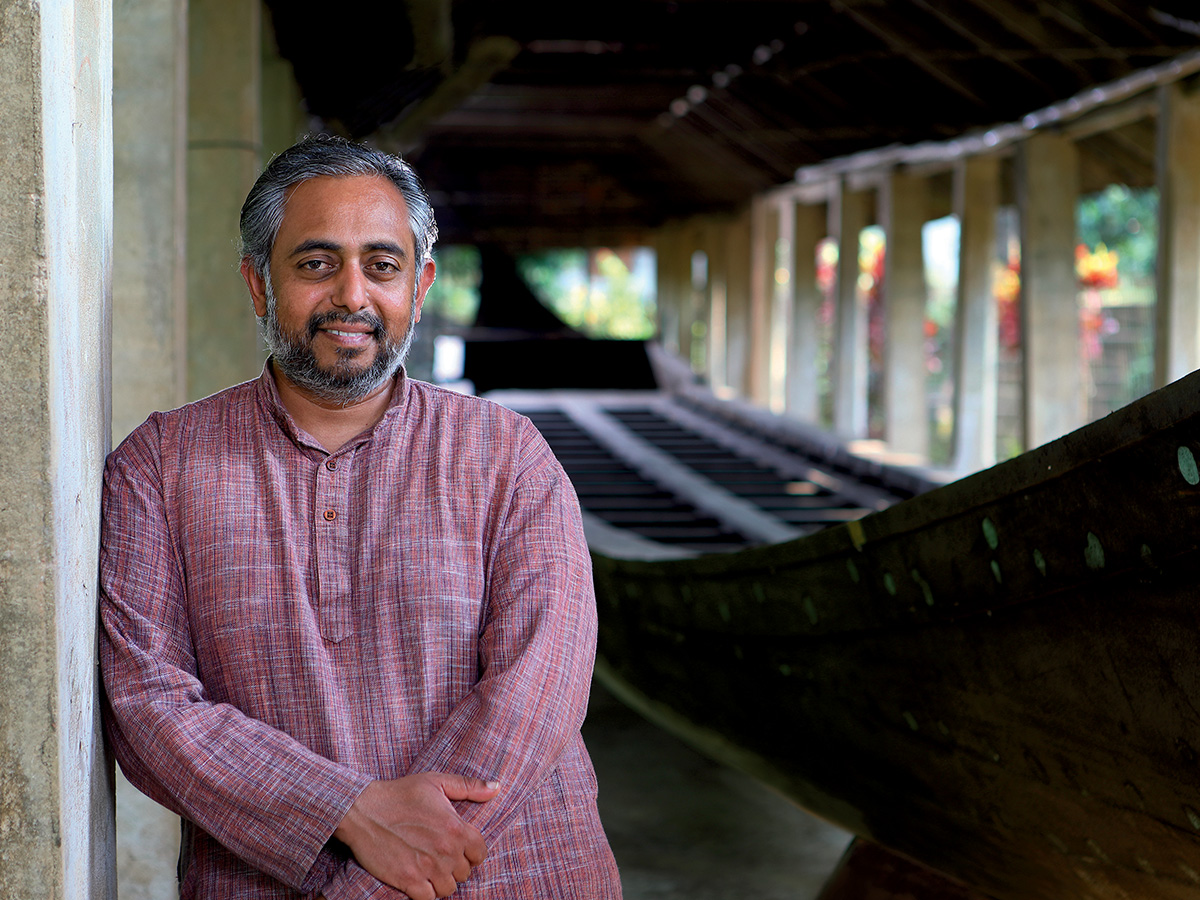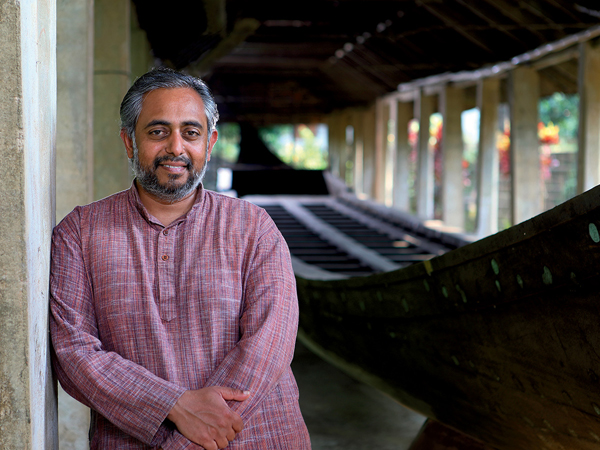The Infosys Prize 2019 for Humanities is awarded to the historian Dr. Manu V. Devadevan for his highly original and wide-ranging work on pre-modern South India. His book A Pre-History of Hinduism offers a powerful and refreshing new approach to the study of the cultural history of India, based on his profound knowledge of sources in multiple languages.
Infographic:
Infographic: the Making of India
Scope and Impact of Work
Dr. Manu V. Devadevan was trained in Sociology at Annamalai University, in History at JNU, and completed his PhD from Mangalore University under the guidance of Prof. Kesavan Veluthat. He has a very broad set of interests as well as areas of expertise, resulting in part from his mastery of different bodies of sources in multiple languages, such as Kannada, Malayalam, Tamil, Telugu, Sanskrit, and Odiya. He has published widely in Kannada and English, both in the form of learned essays and books, and history books for use in schools.
In studies ranging from Pallava kingship, Kudiyattam theatre, the history of mathematics and astronomy in India, the Jagannatha temple in Puri, and above all the masterly A Prehistory of Hinduism (2016), Devadevan has offered a revisionist paradigm for the study of pre-modern India. He also possesses a mastery of the more technical skills required in the study of medieval history, especially in the analysis of epigraphic material. Dr. Devadevan is also engaged in a set of exciting projects, on the regional origins of medieval India, history writing in pre-colonial Kerala, and the history of medieval Odisha (focusing on the Jagannatha cult).
Manu Devadevan’s work bridges the divide between history and artistic domains, based on his imaginative interpretation of materials from theatre, literature, ritual and religious fields. His work, which has already had a significant impact in studies of South India, is coming to be more widely recognized in India as well as abroad. His work, marked by an irreverent and skeptical sensibility, is among the most exciting to emerge in recent years in the study of Indian history.
Bio
Dr. Manu V. Devadevan is an accomplished historian and literary scholar, with wide interests and horizons. Dr. Devadevan currently teaches history at the Indian Institute of Technology, Mandi. He received his academic training at Annamalai University, Jawaharlal Nehru University, and Mangalore University.
Though mainly centered on pre-modern history, Devadevan's research interests extend beyond it to include cultural and literary practices in South India, South Indian epigraphy, and political and economic processes in pre-modern South Asia. He has published scholarly works in both Kannada and English, including a number of edited volumes. His most recent book is A Pre-History of Hinduism (2016). He has also written widely in various well-known journals and edited volumes.
Dr. Devadevan’s journal articles in English include ‘Lying on the Edge of the Burning Ground: Rethinking Tinais,’ Journal of the Economic and Social History of the Orient (2006); ‘From Lineage to Territory: The Making of Territorial Self-Consciousness in Kalinga,’ Indian Historical Review (2017), and ‘From the Cult of Chivalry to the Cult of the Personality: The Seventh-Century Transformation in Pallava Statecraft,’ Studies in History (2017).
A poet and writer besides being a scholar, Manu Devadevan is also a prolific translator into English, Malayalam, and Kannada.
Timeline
Jury Citation
Dr Manu V. Devadevan is an unusual and important figure from the younger generation of historians trained in India. He has published scholarly work in Kannada, as well as in English, most notably his 2016 book A Pre-History of Hinduism. In this work, Devadevan critically reinterprets much of the conventional wisdom about the cultural, religious, and social history of the Deccan and South India. He has an enviable command of the epigraphic and literary sources in all the south Indian languages, as well as Sanskrit and Odiya.
Dr Devadevan writes a cultural history solidly grounded in its social and economic contexts, and is able thereby to reinterpret major moments of transformation from a broad regional perspective. He offers new conceptual tools for historians of the region, while building on deep traditions of historical writing inherited from his teachers. He is one of the most creative and exciting historians now working in India.
I congratulate Prof. Manu Devadevan for having won the Infosys Prize Humanities. You greatly deserve this prize for having deepened our understanding of the social and cultural history of South India in the pre-modern period and for your remarkable revisions of the conventional wisdoms of this history. I join the entire panel of jurors for the Infosys Prize (Humanities category) in congratulating you warmly for this remarkable achievement.”




